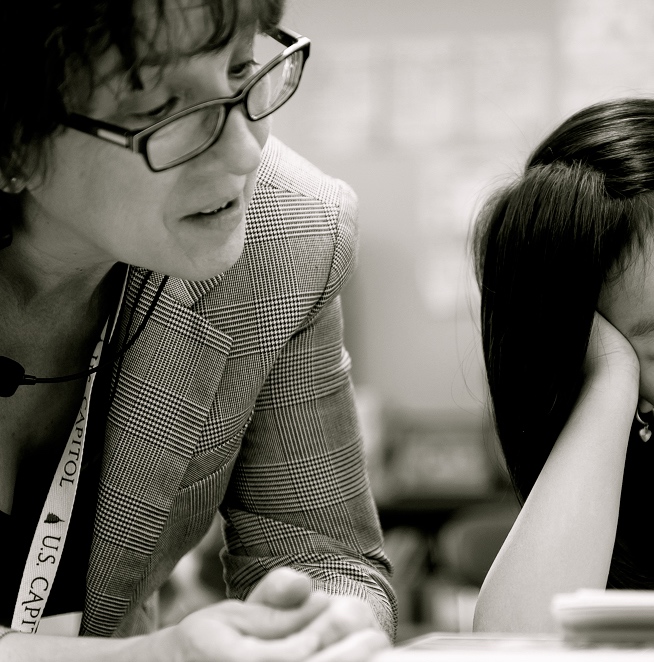Are we over-coaching developing readers?
 One of the texts I've reviewed for a course I'm leading this summer is Jan Burkins and Kim Yaris' Who's doing the work: How to say less so readers can do more. What do you, as teacher, do when a student is stuck in their reading? Do you go into wait-time mode or try to move things along with hints or suggestions of strategies? And if you do either of these, what is the student's response or reaction?Sometimes when we think we are moving responsibility for learning to our students, the shift is not as significant as we think. Case in point: when a student successfully uses a decoding strategy to uncover a challenging word, does the student look to you, the teacher, for affirmation. Surely that's something I was guilty of doing.However, when students come to rely on that affirmation and teacher praise as an indication of whether or not the word was called correctly, that is scaffolding that has over-served its usefulness in steering students toward a gradual release of responsibility. We set the students up for dependency, not independency.In real reading - the kind that students engage in on their own either in school or later in life as adult readers - what happens when a decoding challenge the meaning of the print breaks down? Will a teacher always be there to nod a yes or to give hints?The end game for reading instruction is to enable a reader to develop so that he or she knows that to do when confronted with reading challenges. Instead of leading a student through the use of a specific strategy (get your mouth ready, think about what makes sense), what if the prompts from a teacher were more open-ended:
One of the texts I've reviewed for a course I'm leading this summer is Jan Burkins and Kim Yaris' Who's doing the work: How to say less so readers can do more. What do you, as teacher, do when a student is stuck in their reading? Do you go into wait-time mode or try to move things along with hints or suggestions of strategies? And if you do either of these, what is the student's response or reaction?Sometimes when we think we are moving responsibility for learning to our students, the shift is not as significant as we think. Case in point: when a student successfully uses a decoding strategy to uncover a challenging word, does the student look to you, the teacher, for affirmation. Surely that's something I was guilty of doing.However, when students come to rely on that affirmation and teacher praise as an indication of whether or not the word was called correctly, that is scaffolding that has over-served its usefulness in steering students toward a gradual release of responsibility. We set the students up for dependency, not independency.In real reading - the kind that students engage in on their own either in school or later in life as adult readers - what happens when a decoding challenge the meaning of the print breaks down? Will a teacher always be there to nod a yes or to give hints?The end game for reading instruction is to enable a reader to develop so that he or she knows that to do when confronted with reading challenges. Instead of leading a student through the use of a specific strategy (get your mouth ready, think about what makes sense), what if the prompts from a teacher were more open-ended:
What do you notice?
What can you try?
There are undoubtedly times when explicitly teaching strategies for decoding and comprehension are not only appropriate, they are essential. How else would a reader learn about them? But once the strategy has been introduced, practiced and become part of a reader's repertoire, shouldn't we, as coaches, allow the reader to decide what to do?Over coaching developing readers is something I became aware of as an active and as a retired teacher. More open-ended questions and less controlled coaching not applies to reading. Think of the implications for problem-solving in math.So I ask: are we empowering our students to truly be independent? Or, as Yaris and Burkins point out, are we creating learners who are dependent upon our affirmation and approval? Are we allowing students to be independent learners?